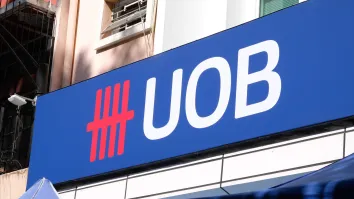
SEA fintech funding drop 23% to $1.6b in 2024
This is 75% lower than the funding it got in 2022.
Southeast Asia’s (SEA) fintech ecosystem saw its funding drop 23% year-on-year (YoY) to $1.6b in 2024, according to data from Traxcn.
This also represents a 75% decline from the $6.3b the sector amassed in 2022.
Late-stage rounds secured seed-stage funding worth $190m, 6.4% lower than the $203m in 2023.
Early-stage funding fell 16% to $750m in 2024 from $893m in 2023.
Late-stage investments declined the most, falling by 31% to $694m in 2024 from the $1b in funding secured in 2023.
Funding in 2024 returned to pre-pandemic levels, reflecting challenges posed by macroeconomic conditions, rising interest rates, and geopolitical tensions, Traxcn said.
Despite the decline, SEA’s fintech sector is still one of the top-performing areas in the tech startup landscape in SEA, it added.
“Southeast Asia's FinTech ecosystem demonstrated remarkable resilience in 2024…Despite challenges such as rising interest rates, the sector's innovative spirit continued to shine, with segments like payments and cryptocurrencies achieving significant growth,” said Neha Singh, co-founder and CEO of Tracxn.
“This is a pivotal moment for startups to refine their strategies and unlock the region's immense potential,” Singh said.
Ascend Money’s $195m Series D round was the biggest deal in 2024 for SEA fintechs.
Other notable deals include ANEXT Bank’s $148m Series D round; and Bolttech’s $100m Series C round.
SEA only recorded one new unicorn: Polyhedra Network. It raised $20m in a series B funding round, with a valuation of $1b.
Amongst markets, Singapore led the funding activity, followed by Jakarta and Bangkok.
FinTech companies based in Singapore raised $955m in 2024, whilst those headquartered in Jakarta and Bangkok raised $242m and $198m, respectively.
Most active investors in the ecosystem include East Ventures, Y Combinator, and 500 Global.
Antler, Mirana, and Alliance DAO were the most active seed-stage investors; whilst UOB, Argor Capital Management, and Peak XV Partners took the lead in early-stage funding.
NewView Capital and The Rise Fund were the most active late-stage investors.



















 Advertise
Advertise











